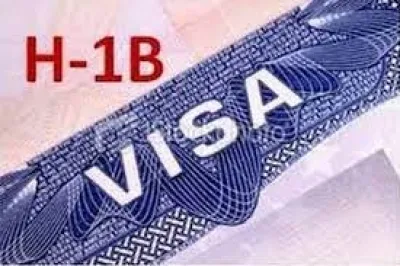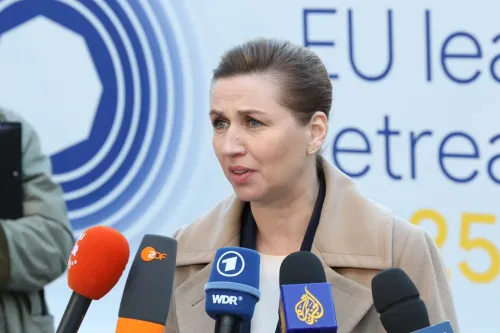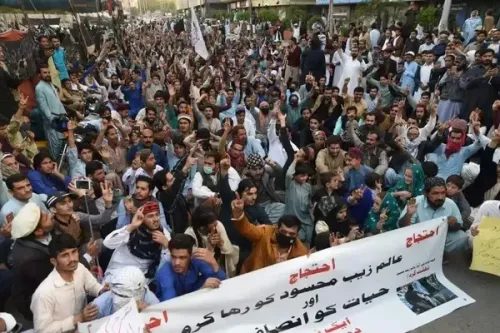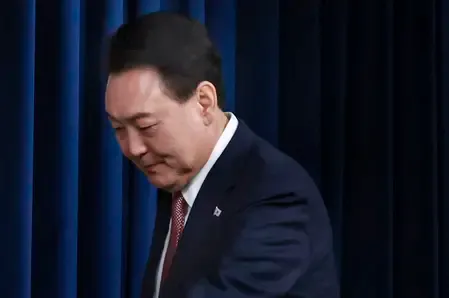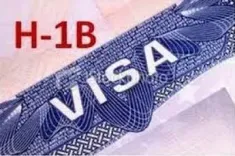How are US and South Korean Army Chiefs Expanding Military Collaboration?
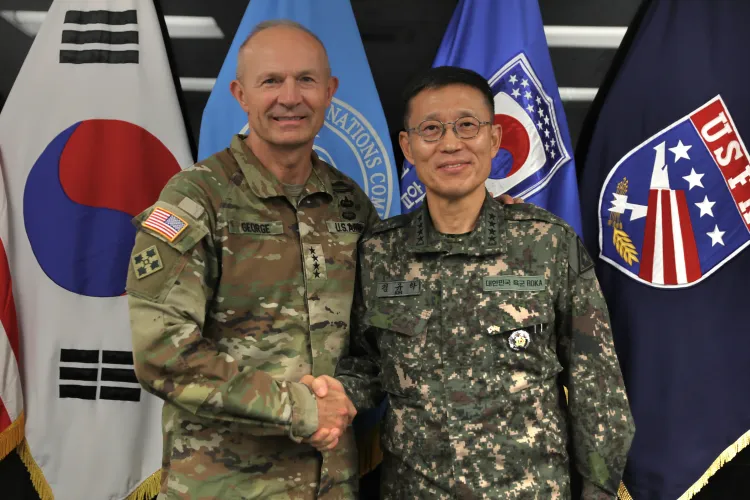
Synopsis
Key Takeaways
- Increased military exchanges between South Korea and the US.
- Joint military drills to enhance preparedness.
- Commitment to denuclearisation of North Korea reaffirmed.
- Focus on regional stability amidst rising threats.
- Stronger trilateral cooperation with Japan.
Seoul, Sep 23 (NationPress) General Kim Gyu-ha, the Army Chief of Staff of South Korea, recently engaged in discussions with his US counterpart, General Randy A. George, to explore avenues for increasing the exchange of high-ranking military officers and enhancing collaborative military exercises, as reported by officials on Tuesday.
The meeting took place at Camp Humphreys in Pyeongtaek, approximately 60 kilometers south of Seoul, on Monday, according to the armed services and Yonhap News Agency.
The leaders acknowledged that the Seoul-Washington alliance has become a crucial element for ensuring peace and stability in the Korean Peninsula and beyond.
Kim stated, “We will sustain and enhance our cooperation with the US Army by revitalizing joint training and sharing visions for military innovation to address forthcoming challenges and prepare for the future.”
In a related development, top diplomats from South Korea, the United States, and Japan reiterated their strong commitment to the denuclearisation of North Korea, as reflected in a joint statement released on Tuesday. This follows North Korean leader Kim Jong-un's remarks urging Washington to abandon its denuclearisation demands as a prerequisite for resuming talks with Pyongyang.
The statement was issued after a meeting between Foreign Minister Cho Hyun, US Secretary of State Marco Rubio, and Japanese Foreign Minister Takeshi Iwaya, which took place on the sidelines of the UN General Assembly in New York, focusing on their partnership and shared concerns, particularly regarding North Korea's nuclear threats.
The international leaders' statement highlighted their unwavering commitment to the denuclearisation of the Democratic People's Republic of Korea (DPRK) in line with relevant United Nations Security Council (UNSC) resolutions while striving to maintain peace and stability on the Korean Peninsula through dialogue and diplomacy.
They emphasized the need to collaboratively address the DPRK's nuclear and missile programs and to uphold and reinforce the sanctions against the DPRK by responding decisively to any violations of the UNSC resolutions.
During the parliamentary meeting, Kim warned that it would be a misstep to assume that North Korea could be coerced or subdued through sanctions or displays of force.
In their discussions in New York, Cho called for “active cooperation” from Washington and Tokyo to reignite dialogue with Pyongyang and to achieve meaningful progress towards peace on the Korean Peninsula and resolution of nuclear issues, as stated in a separate press release from the foreign ministry.
The joint statement reaffirmed the US's extended deterrence commitments to its two Asian allies, which are deemed “critically important” for the security and stability of the Korean Peninsula and the broader Indo-Pacific region.
The leaders expressed their resolve to enhance defense and deterrence through robust security cooperation, including the regular conduct of the trilateral multidomain exercise 'Freedom Edge', and to fortify their respective defense capabilities.
The statement also included language suggesting a united stance against China's assertiveness, opposing “unlawful maritime claims” in the South China Sea amidst ongoing disputes between Beijing and neighboring countries like the Philippines.
Attention was also drawn to the Taiwan Strait, where the leaders expressed concerns over the increasing frequency of destabilizing actions surrounding Taiwan.
They “encouraged the peaceful resolution” of cross-Strait issues and opposed any attempts to unilaterally alter the status quo.
The statement reiterated serious apprehensions regarding North Korea's growing military collaboration with Russia, including Moscow's support for Pyongyang's military capabilities, especially its long-range missiles.
They also shared concerns about North Korea's malicious cyber activities perpetrated by its information technology workforce and the necessity to enhance trilateral collaboration to counteract such activities.

